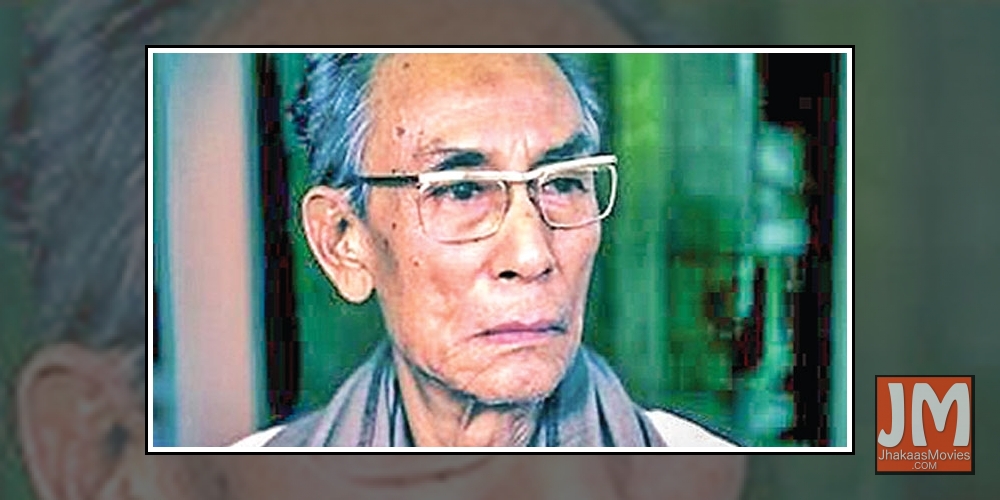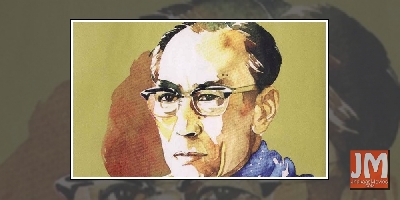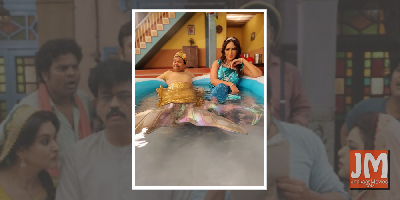 Aan Tiwari honoured with Best Child Actor award for Baal Shiv
Aan Tiwari honoured with Best Child Actor award for Baal Shiv Ghategi rahasymayi ghatnaye!
Ghategi rahasymayi ghatnaye! Amazon Prime Video unveils the 2021 Festive Line-up; brings a heady mix of Indian and International titles on the service
Amazon Prime Video unveils the 2021 Festive Line-up; brings a heady mix of Indian and International titles on the service Release: Music video of, Yeh Haalaath, from Mumbai Diaries 26-11
Release: Music video of, Yeh Haalaath, from Mumbai Diaries 26-11 Bhumi Pednekar feels she shares feel-good value with Akshay Kumar on screen
Bhumi Pednekar feels she shares feel-good value with Akshay Kumar on screen
Remembering Sachin Dev Burman, The Wizard Of Music On 43rd Death Anniversary

By 1973, age had begun to impact Sachin's health adversely. He somehow managed to continue working with his indomitable mental strength. Music was his life and he continued working tirelessly in pursuit of his muse. The result was the release of three films in 1973 with him as the music director—Hrishikesh Mukherjee's Abhimaan, Vijay Anand's Chhupa Rustam and Pramod Chakrabarty's Jugnu.
In Abhimaan, Sachin achieved a perfect blend of music that was both artistically and commercially successful, superimposing a popular tune on a classical base. Above all, the engrossing rapture created by the flute fills the mind with the soft glow of moonlight. Lata sang three songs, 'Nadiya Kinare', 'Ab to hai tumse', and 'Piya bina piya bina' for this film. All are unforgettable melodies. Who else but Lata, with her divine voice, could have been chosen to sing the songs which were meant to overshadow the hero's voice? Whatever it may be, whatever might have happened on screen, the melody of Kishore's solo, 'Meet na mila re man ka' was unforgettable.
Continuing with the tradition of popular music for films starring Dev Anand, Chhupa Rustam had a string of peppy numbers. Ever since Aradhana, Kishore had not only become a constant in Sachin's plan of things, he was also the reigning king of playback in the world of Hindi films. Unsurprisingly then, it was Kishore all over in Chhupa Rustam, in his trademark fun avatar with songs like 'Dhire se jana khatiyan mein' (echoing Sachin's Bengali hit 'Nishite jeiyo phulabatie re bhramara'), 'Hum chhupe rustam hain', and the tap-beat-inspired duet with Asha 'jo main hota ek tuta taaj', Another romantic song by Kishore and Lata was also highly popular: 'Bolo kya humko dogey'. Then there was Asha rendering a vampish number, 'janu main jale mera dil.'
Jugnu was a reminder of his versatility, an example of how good he was with modern, romantic and playful numbers. An example is the super-hit Lata-Kishore duet 'Gir gaya Jhumka' with its naughty playfulness. Just as in his own Bengali songs he uses the indeclinable—ah, o-lio, a-ha, o-o-o-to bring the requisite effect, here too he had Lata and Kishore articulate an odd phrase of longing and mischievousness, conveying the playful nature of the romantic relationship between the hero and the heroine. Another example is Lata's 'Jane kya pilaya tu ne bada maza aaya'. Kishore's song 'Tera peechha na main chhodunga' shows Sachin's in creating a efficiency chartbuster in keeping with the demands of the era. Hearing the bubbling effervescence of these songs it is difficult to imagine that the composer was nearing seventy years of age. It was as if Sachin-karta had just stepped into his youth.
The year, 1975, saw two of his films being released, which were, in effect his swansong—Chupke Chupke and Mili, both directed by Hrishikesh Mukherjee. Well, what music he created in these films! With age, his compositions seemed to have reached an unsurpassable height. In an era that was becoming more and more inclined towards son Rahul's 'Dum maro dum' and 'Mehbooba mehbooba', Sachin stayed true, with absolute devotion, to Indian tradition and culture in his music.
The songs from both these films became very popular. Lata had a field day with gems like 'Chupke chupke chal ri purvaiya' and 'Ab ke sajan sawan mein', the former pensive, moody, conveying the lilt of the yesteryears that soothes one and makes one long for one's beloved; the latter naughty, playful, like the monsoon rain drenching one's courtyard while one waits for one's love to come home.
Mili had three immensely popular songs. Lata's 'Maine kaha phoolon se' conveys the wonder of creation and it is no longer surprising that something as young at heart was composed by someone in his seventieth year. Kishore's 'Aaye tum yaad mujhe' and 'Badi sooni sooni hai' were in keeping with the serious and mature nature of the hero, played by Amitabh Bachchan, and remain two of the singer's finest songs. 'Badi sooni sooni hai' is generally credited as Kumar Sachin Dev Burman's last composition.
Sachin Dev Burman's greatness lay in his ability to strike a delicate balance between the classical and the popular. His songs are plain and simple, bereft of complexities and full of grace. His songs hum in one's mind. He was always mindful that his compositions had to be accessible to the common man. On 31 October 1975, the Prince of Music, King of Kings, Kumar Bahadur Sachindra Chandra Dev Burman breathed his last.









